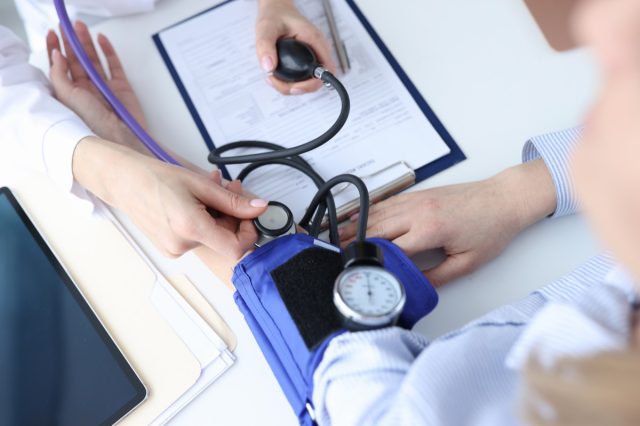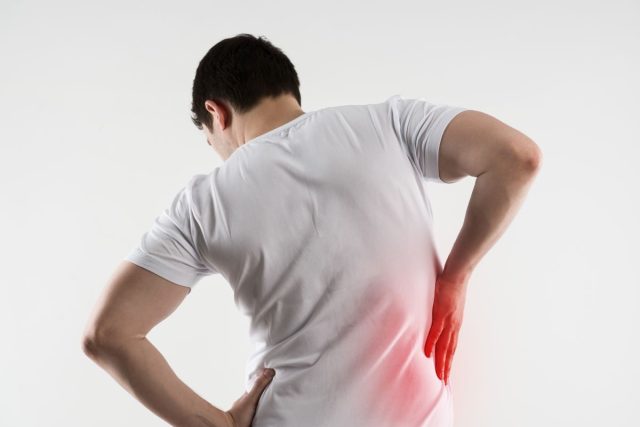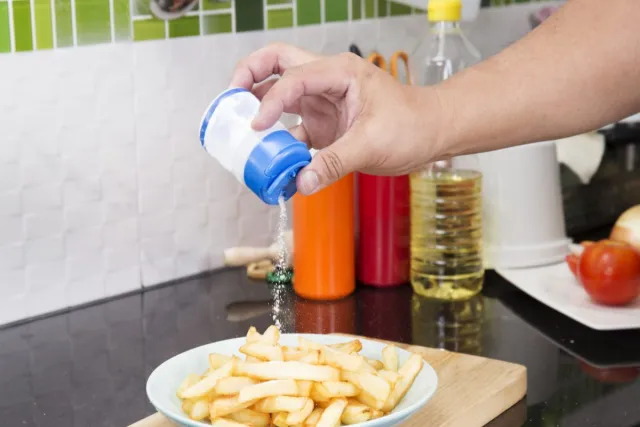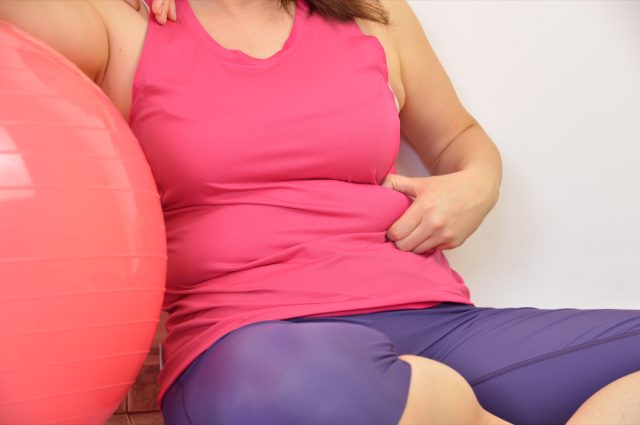Doing This One Thing Can Slash Your High Blood Pressure Risk — Eat This Not That

[ad_1]
Lifestyle choices make all the difference when it comes to high blood pressure or hypertension–a condition that millions live with. According to the Centers for Disease Control and Prevention, “Nearly half of adults in the United States (47%, or 116 million) have hypertension, defined as a systolic blood pressure greater than 130 mmHg or a diastolic blood pressure greater than 80 mmHg or are taking medication for hypertension.” While there are certain risk factors like age, family history and ethnicity you can’t change, there are several ways to help prevent high blood pressure with healthy habits. Eat This, Not That! Health spoke with Dr. Jacob Hascalovici MD, PhD as the Clearing Chief Medical Officer who explains what to know about hypertension and how to reduce the risk. Read on—and to ensure your health and the health of others, don’t miss these Sure Signs You’ve Already Had COVID.

Dr. Hascalovici tells us, “You should know that it’s possible to have high blood pressure and yet not be aware of it. That’s why regular health checks are so important. If your doctor doesn’t mention your blood pressure results, you should ask about them specifically. Women, African American men, and people who consume a lot of sodium are at a heightened risk of high blood pressure.”

Dr. Hascalovici explains, “High blood pressure can wear you out, contributing to fatigue and pain while also making it more likely you might have a heart attack or stroke. Untreated high blood pressure can also lead to problems with your kidneys, heart, and eyesight.”

According to Dr. Hascalovici, “Salt drives up your blood pressure because it encourages your body to retain water, which puts more stress on your veins. A typical American way of eating, unfortunately, makes it easy to eat a bit too much salt. Cutting your daily salt intake by even a pinch can help, though. To help even more, do your own cooking when possible, using flavorful spices instead of salt, and steer clear of heavily processed foods, fast food, and heavily salted things when you can.”
The Mayo Clinic states, “Even a small reduction of sodium in the diet can improve heart health and reduce high blood pressure by about 5 to 6 mm Hg.
The effect of sodium intake on blood pressure varies among groups of people. In general, limit sodium to 2,300 milligrams (mg) a day or less. However, a lower sodium intake — 1,500 mg a day or less — is ideal for most adults.”

“When you’re stressed, your body produces hormones to help deal with a possible emergency or whatever is stressing you, meaning your heart typically beats faster, among other things,” Dr. Hascalovici states. “Over time, high stress can lead to high blood pressure. Exercise, sleep, good friends, doing meaningful things, and taking quiet moments to slow down can all help manage stress. Some people do meditation, get massages, take walks in nature, or practice mind-body techniques to lower their stress levels.”

According to the Mayo Clinic, “the size of the waistline is important. Carrying too much weight around the waist can increase the risk of high blood pressure.
In general:
- Men are at risk if their waist measurement is greater than 40 inches (102 centimeters).
- Women are at risk if their waist measurement is greater than 35 inches (89 centimeters).”
Heather Newgen
[ad_2]
Source link
